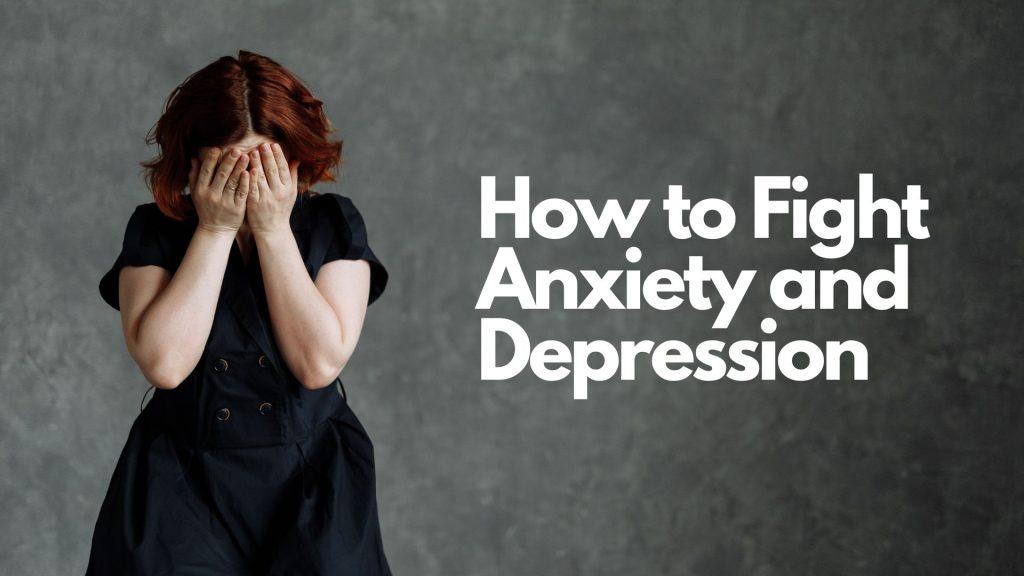
Introduction
Anxiety and depression are the two most common mental health conditions, affecting millions of individuals worldwide. The good news is there are proven approaches to manage and minimize symptoms. So here is a complete guide you will learn ways to tackle anxiety and depression, that would keep you never down and make your life worth living.
Understanding Anxiety and Depression
It’s important, before laying out solutions, to understand what these conditions mean:
Anxiety: Involving extreme worry, nervousness, or fear within ordinary situations
Depressive disorder (depression): It is persistent sadness, hopelessness, and little interest or pleasure in activities CDC
Both can disrupt home life but are manageable with appropriate permissions.
Making some lifestyle adjustments can have a big effect on mental health:
Stay Physically Active on a Regular Basis
Exercise has been proven to alleviate symptoms of depression and anxiety. Exercise releases endorphins, natural mood boosters. Exercise most days for at least 30 minutes at a moderate pace. Depression Center+8Home+8Mayo Clinic+8
Suggestions:
Walking or jogging
Cycling
Swimming
Dancing
Maintain a Balanced Diet
Nutrition is a key factor for mental health. Watch what you eat Consuming a diet rich in fruits, vegetables, lean proteins and whole grains can positively affect mood and energy levels.
Tips:
Control (refined) sugars and carbohydrates. The US Sun+2Piedmont Healthcare+2Health+2
ADD omega-3 fatty acids from fish, nuts and seeds.
Prioritize Quality Sleep
Good sleep supports emotional regulation. Strive for 7-9 hours of good sleep every night. UHC
Sleep Hygiene Practices:
Sleep consistently at the same hour. UHC
Make a calming ritual before sleep.
Reduce screen time before sleep.
Minimize Alcohol and Caffeine Consummation
Both can worsen anxiety and depression symptoms. The effects can become apparent by scaling back consumption.
Recommendations:
Choose herbal teas or water over caffeinated beverages.
Please drink alcohol in moderation, following the colors where permitted.
Stress Management Techniques
Managing stress can help relieve symptoms of anxiety and depression:
Use mindfulness and meditation techniques
Mindfulness encourages being present and fully experiencing the moment. Meditating regularly can slow down racing thoughts.
How to Start:
Spend 10–15 minutes meditating every day.
Try guided meditation apps or videos. Medical News Today
Deep Breathing Exercises
Deep breathing can trigger the body’s relaxation response.
Technique:
Breathe in through the nose for a count of four.
Inhale again for four counts, holding it for four.
Exhale gently through the mouth for a count of four.
Repeat multiple times until feeling calmer.]
Journaling
You’ll find clarity through writing down thoughts and feelings can declutter and relieve stress.
Tips:
Make time to write every day.
Reference adjectives or words that refer to emotions.
Creating a Positive, Supportive Environment
A robust support system is critical:
Connect with Loved Ones
Opening up about your feelings to trusted friends or family members allows for a sense of relief and an informed perspective.
Suggestions:
Schedule regular check-ins or calls.
Find and participate in social gatherings that you enjoy.
Seek Professional Help
Therapists and counselors can provide coping strategies specific to one person’s needs.
Options:
Cognitive Behavioral Therapy (CBT)
Using Relaxation Techniques
Activities that lead to relaxation can help alleviate symptoms:
Aromatherapy
Some fragrances, such as lavender, help ease anxiety. Medical News Today
How to Use:
Use essential oil diffusers. Psychiatrist. com+2PMC+2Mind+2
Put a few drops into a warm bath.
Yoga and Tai Chi
These combine physical movement with mindfulness and relaxation.
Benefits:
Improves flexibility and strength.
Lowers the stress and anxiety rates.
Conclusion
When dealing with anxiety and depression it is important to rely on several areas of life such as building up an environmental number of lifestyle activities, courses, and social life along with reducing stressors. Following these techniques will lead to great improvements in mental health. Therefore, do not hesitate to ask for professional support, it is a sign of strength and you can overcome all this with the right support.
